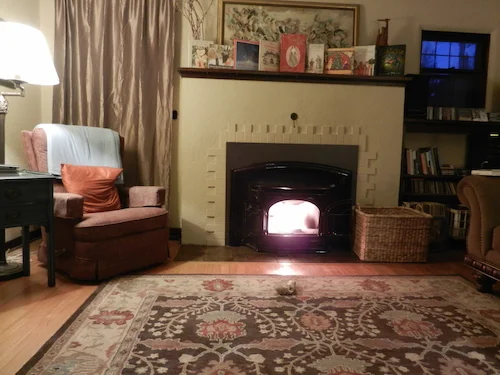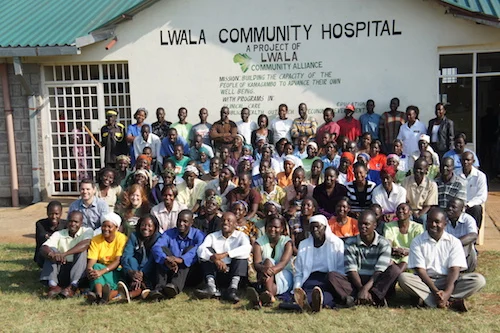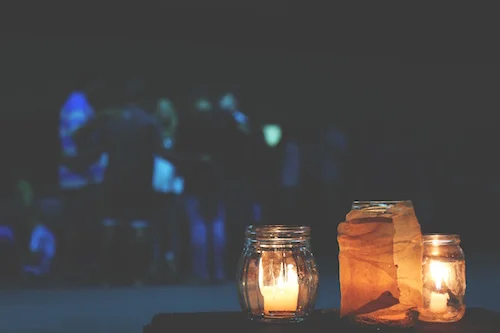The stories people tell determine the course of history. A true story can lead to peace; the oppression of peoples’ stories leads to war. Although I do not claim to be ending any international conflicts with my story, I do hope it will show something of the nature of immigration and the part it plays in bringing peace. Every story ought to be heard.
I was born in South Africa. Apartheid, an official policy of segregation of blacks and whites, dominated the story of South Africa for half of the last century until shortly after my birth. It claimed that white Christians were called by God to rule the country because they were the superior race. The stories of black South Africans were not told. The biblical story of God was truncated and twisted to fit the story of the white people.
As with many stories of colonialism, the Europeans’ oppression of the indigenous peoples during the past century caused the displacement and division of millions of families. My extended family was part of the European and Middle Eastern minorities who settled in South Africa a few centuries ago and were therefore a part of the ruling minority. My parents met during apartheid. They were young teenagers, and along with falling in love with each other they fell in love with God. They listened to the stories of their black friends’ lives in shanty towns where water, security, books, and electricity were scarce. They read the Bible and listened to God’s story of justice and grace. They were mentored by Christians whose anti-apartheid activities endangered their lives, and they themselves were involved in anti-apartheid activities. They lost friends and tried to navigate their faith within the contrast of God’s love for justice and the violence of apartheid.
Like any country that tries to tell a story which is not true, South Africa was forced by the pressure of living a lie to eventually tell the truth. When apartheid finally came to an end with multiracial elections in 1994, my dad spent years as a translator for the Truth and Reconciliation Commission, listening to the stories of perpetrators and victims. Once he finished working as a translator he decided he wanted to attend seminary in Canada, then return to South Africa as a pastor. We moved to Canada on New Year’s Day 1998.
During my dad’s studies at seminary, we knew people from all over the world hoping to return to their home countries; we were surrounded by other “foreigners” while living in Vancouver. Belief in the story of God’s love for the world led them to study the Scriptures. Most hoped to become a particular kind of storyteller — a preacher — so they could go back home and tell the story well. My dad believed the South African narrative of injustice needed the biblical narrative of God’s mercy and forgiveness through Christ’s death on the cross.
I was also surrounded by “foreigners” at the public school I attended; it was full of Asian immigrants. One of my traumatic childhood experiences was making friends with a little girl who disappeared one day because her family moved back home. I remember visiting a little convenience store where her parents had worked and asking the employees whether they knew my friend’s new address so I could write to her, but they were also immigrants and couldn’t understand what I said. It was my first experience with the instability of an immigrant’s life.
I shed my accent within the first year. I learned to read, and a whole new world of stories opened up to me. We expected to move back to South Africa eventually but decided to stay in Canada when my dad got a job in the province of Ontario. I was too young to think much about it. In Ontario, two older couples who worked with my dad took us in during the first few months as we searched for a house. Hours and hours of that first summer were spent languishing in the back seat of our old Chevy as we drove from one suburban neighborhood to another, searching for an affordable home.
In 1999, we found a house to rent in a suburb of Brampton. Every house looked the same on the outside, but when you stepped inside one, you might have entered India, Italy, Afghanistan, Pakistan — every country in the world except Canada. In the summer we went to a world festival hosted all over the city by immigrants from different cultures — we ate their food, we learned their crafts, and we listened to their music.
In Brampton I attended a private Christian school where most of my friends were Dutch. Their parents or grandparents were usually immigrants as well. The grandparents often lived in their basements or in nearby retirement homes. My class would visit a nearby retirement home to learn how to “serve.” I remember showing my fillings to an old woman in a wheelchair by opening my mouth wide and leaning close while she peered inside. I was disturbed by their lives — they seemed profoundly displaced, as though no one wanted them at home before they experienced the ultimate displacement of death. But many of them were comfortable in the community because they could speak Dutch with their friends and even shop at a Dutch grocery store in the building.
 Photo: Tala Azar
Photo: Tala Azar
At the same time, many of the elderly members of our church took pity on us because we had no grandparents living nearby. They invited my sister and me to spend an afternoon biking or knitting or gardening. Their thick Dutch accents often confused me, but I enjoyed feeling special. They had their own grandchildren, but Christian hospitality compelled them to pamper us. My favorite trips involved visiting antique stores hidden in old barns in the middle of miles and miles of fields where we searched for dainty teacups with floral designs. Sometimes those good people even took us to their cottages in northern Ontario, where we could canoe and swim in any one of the thousands of lakes.
One summer we moved to an old Victorian house in a small town north of Toronto called Georgetown. Georgetown is entirely different from Brampton, and mostly populated by Caucasians. But people from all over the world stayed with us during those years, sometimes passing through for a business trip or a visit. I loved listening to them talk late into the night. Every topic was covered in those conversations: poverty, politics, literature, food, theology, music, and anything that struck their fancy. We were homeschooled during those years, so I immersed myself in books and stories about the world.
One of the places I felt most welcome in Canada was church. After leaving our first church in Ontario, we attended four different churches over seven years, but I felt at home in all of them in different ways. In all of those churches, worship included singing songs from all over the world, and we often sung in different languages. I heard the story of a world promised to us, where all people have a home and family. Pastors preached that through the blood of Jesus, the family of God is united across all genders, races, languages, and nations. I heard sermons on the book of Nehemiah, which made it clear that God wants a world where cities are full of life and safe for everyone. The ebb and flow of nations going into exile then coming home again gave rhythm to the stories of the Old Testament. Slowly but surely my story became woven into the story of the Bible.
After a few years we moved to the city of Hamilton, not far from the border. We rented a house in a beautiful old neighborhood known for its Jewish population. We made friends with an older Jewish couple — one a philosopher, the other a political philosopher and historian. They talked enthusiastically about opera and Shakespeare and told hilarious stories. I reveled in the luminosity of their words, hoping one day to possess the same kind of intellectual vibrancy. They were physically frail and rapidly aging, but immersing in the vigor of their conversation was akin to the shock of jumping into a dark, cool gorge in the heat of summer. They were more alive than any of the teenagers I knew. But they also talked about the difficulties of being Jews living far from Israel — trying to be at home while not at home.
 Photo: Tala Azar
Photo: Tala Azar
In one area of downtown Hamilton there are more services for the disabled, the homeless, refugees, immigrants, and drug addicts than in any other city in Canada. The abundance of services attracts the members of society least able to support themselves. There are also thousands of students in Hamilton because of the many universities and colleges. When I stopped homeschooling and started going to public high school, the student body reflected the diversity of socioeconomic and ethnic backgrounds downtown. Students’ parents might be unemployed because of disabilities, addictions, or recently immigrating. They might work at a factory, the golf club, the university, the Irish pub, or sell Indian furniture downtown. One summer I worked in centers where parents could bring their children for a few hours to get out of the house. Most of them couldn’t speak English; I had to nod and smile to communicate with the Muslim mothers from Pakistan and Somalia, and the Korean and Chinese grandparents, trying to let them know through body language that I would care for their children.
I began to feel like I belonged in Hamilton. Our church was in the same neighborhood as our house and most members walked to the service on Sunday. We bought a house, and also became Canadian citizens one summer in a small, ugly room along with other families from all over the world. Crossing the border no longer meant spending hours waiting to have our fingerprints taken. But in many ways I did not know how to embrace the country I had lived in for so long as an immigrant.
Much to my surprise, during my senior year of high school my parents announced that they were moving to the United States because my dad got a job there. My emotional journey of realizing once again that home is in fact just as transient as it had been in the past was a rocky one. With the knowledge that my parents would be in the U.S. eventually, I chose a college outside of Boston. The summer after my first year I helped my family sell our house and put everything in storage. We didn’t know how long it would be until we lived in a house again. At the beginning of my second year, they moved to Los Angeles so my mom could go to seminary while my dad worked at his relatively new job.
When I first moved to college, my life was defined by the confines of the campus and the (majority of white) students at my college. I do love the stories I get to read, and the professors and students I learn from every day, but some of the most meaningful experiences I had took place off campus in a nearby city. I volunteered at a center for refugees near the end of my first year in college and met a boy around my age who had come from Sudan by himself when he was still in middle school. He told me his story and his dream to return to Sudan as a politician. He said that the reconciliation he dreamed of seeing in Sudan was happening amongst Sudanese refugees and immigrants in America, and he wanted to return with that vision and experience to share with his people at home. I left college that year challenged and encouraged by his story. My own story seemed pale in comparison.
Right now I’m writing from the office where I’m interning in Washington, D.C. I started writing in a little coffee shop on Connecticut Avenue the other night. A song came on that was popular with my high school friends: “Home” by Edward Sharpe and the Magnetic Zeros. Jade Castrinos croons, “Home is wherever I’m with you.” In some strange way my “home” is bigger because of all the people who’ve come through my life. I have had the unique experience of meeting people from all over the world whose citizenship is in God’s Kingdom, and therefore we share a sense of “home” regardless of where we are from originally. People who’ve been displaced share an experience that makes them empathetic towards one another, but Christians share something else — the experience of finding a permanent home in God’s family.
Many people in this world have been forced to leave their homes. They move somewhere unknown and become “the unknown.” They are expected to justify their presence. They experience a yearning to be in a place where everyone knows them and no one doubts that they belong. Being at home means being known. It means the people you love know your story. The first step to being in a loving relationship is knowing someone else’s story. A community where neighbors do not know each other’s stories is often a community where people make up stories about their neighbors. Peace and justice are at risk in a place where people do not know the truth about their neighbors. It is easy to strip someone of their humanity if you can make up a degrading story about them.
The worldwide Church’s role in bringing peace and doing justice is making sure the true stories of its community are being told. That requires mercy and forgiveness. Because God is merciful and forgiving, the Church body, as the dwelling place of God, can become the peaceful dwelling place of all people. If the Church, those who trust and follow Jesus, invites the world to tell its stories, the stories of the world can be weaved into the story of forgiveness through the cross.
 Photo: Tala Azar
Photo: Tala Azar
The Church can take God’s love for granted. When we pray, “Our Father in heaven,” we are taking for granted that God has invited us into His family. In light of God’s hospitality, Christians are in a unique position to offer hospitality to the homeless and displaced people in our midst. We have a family in the Body of Christ and a setting in which everyone has a chance to tell their story. My prayer is that when strangers come to town, the hospitality of the Christian community will be taken for granted.
Tala Azar is a philosophy and political studies double major at Gordon College and a serious tea lover. She is a native of Bloemfontein, South Africa, and most recently, also a citizen of Canada.


















